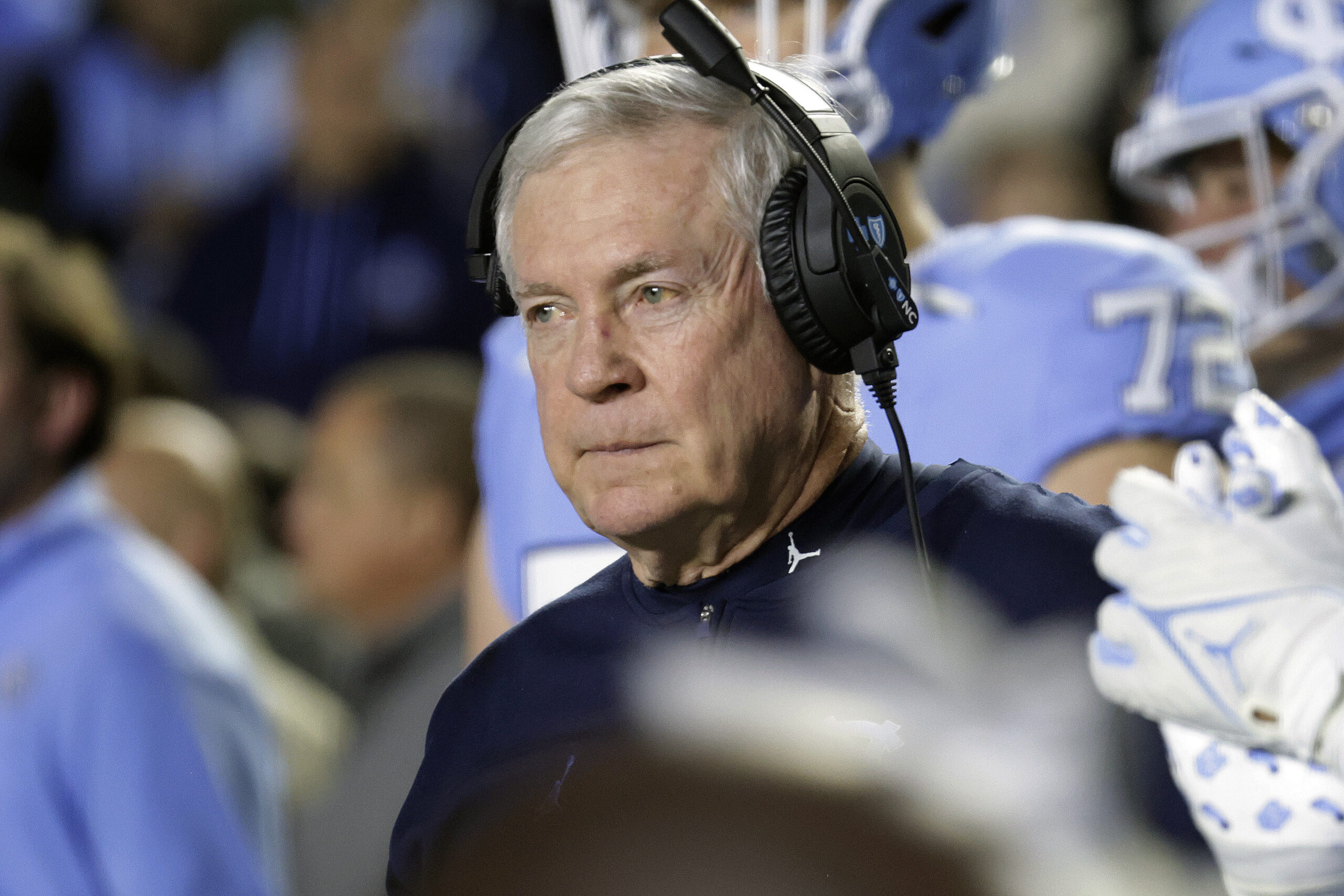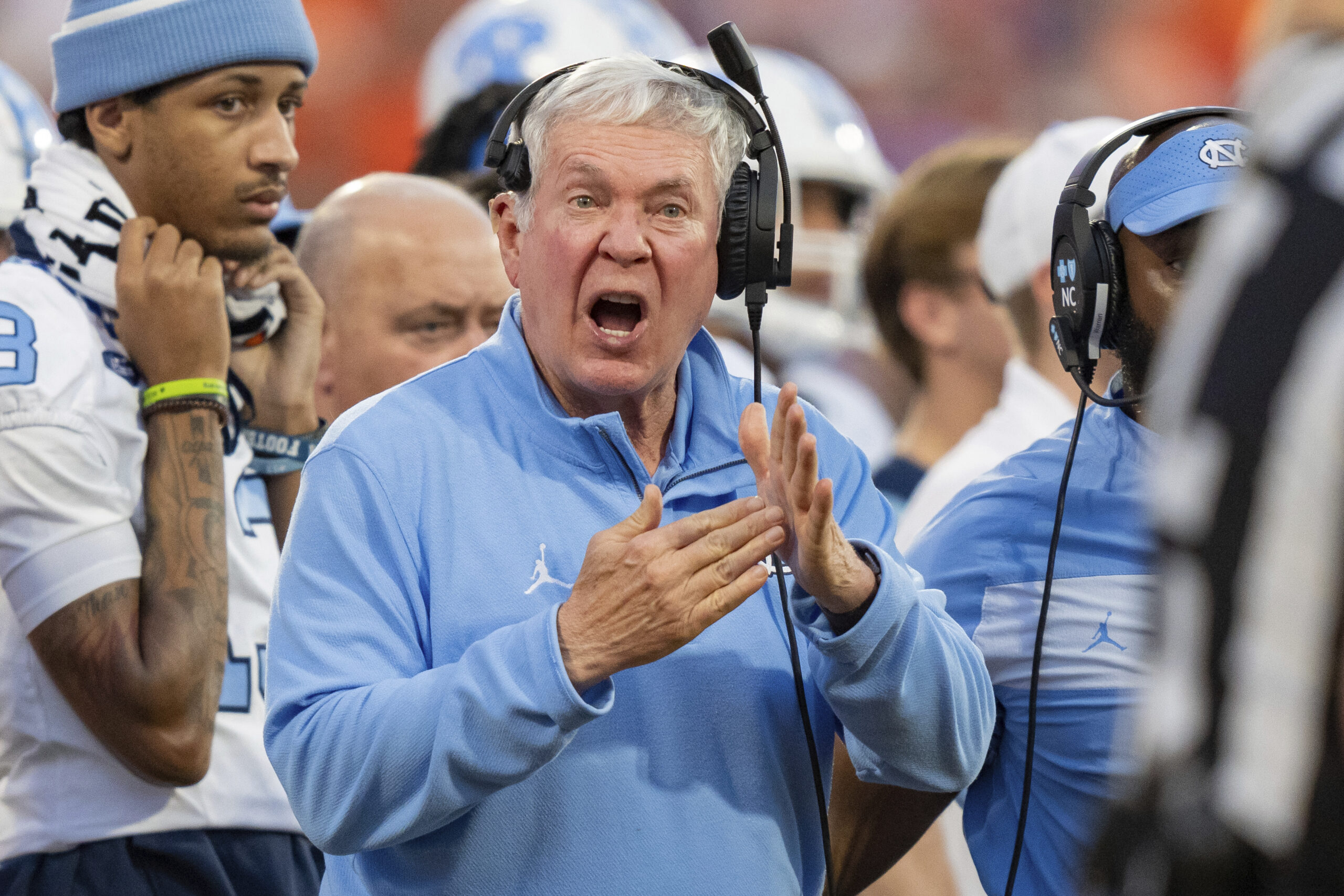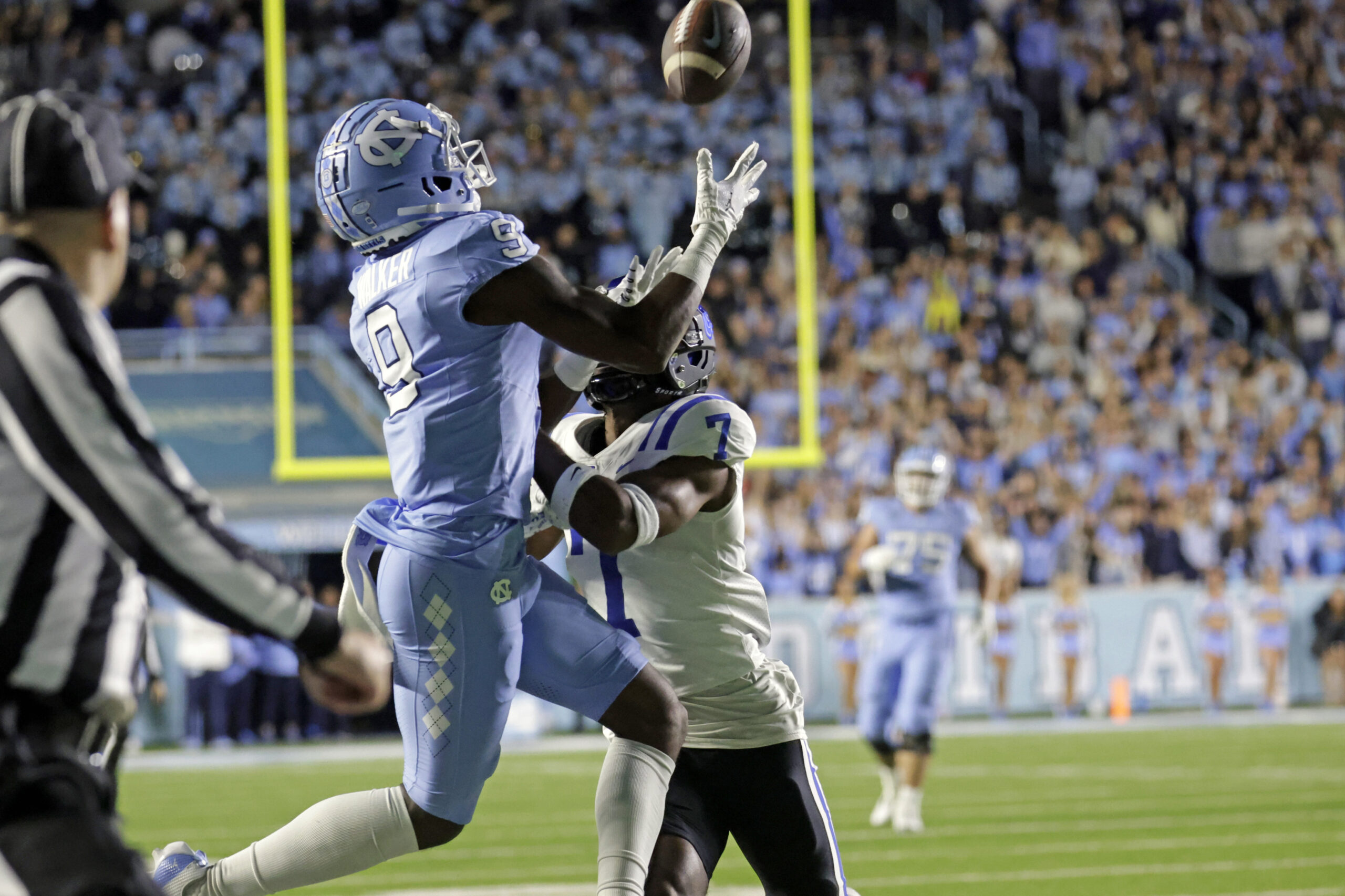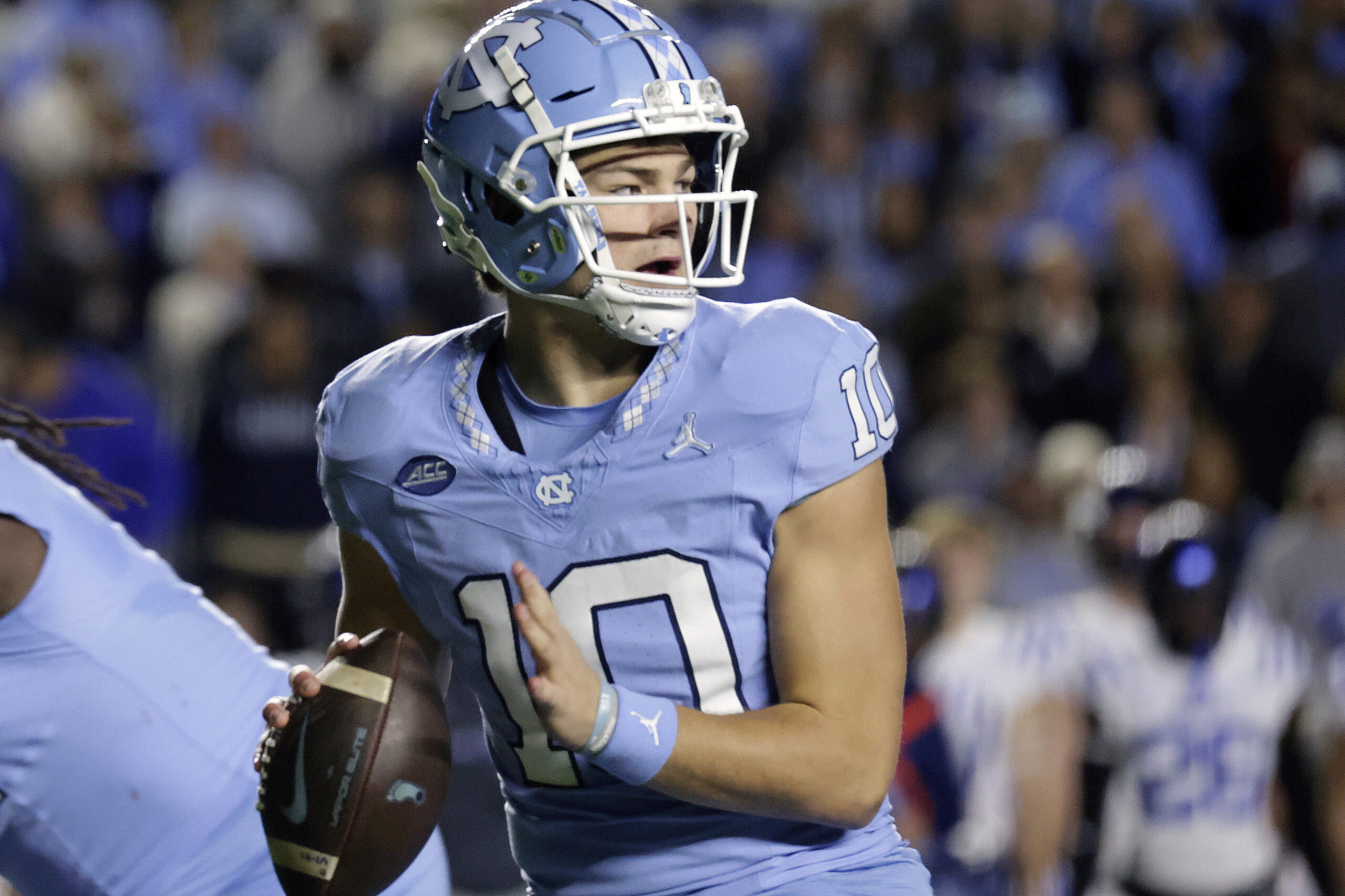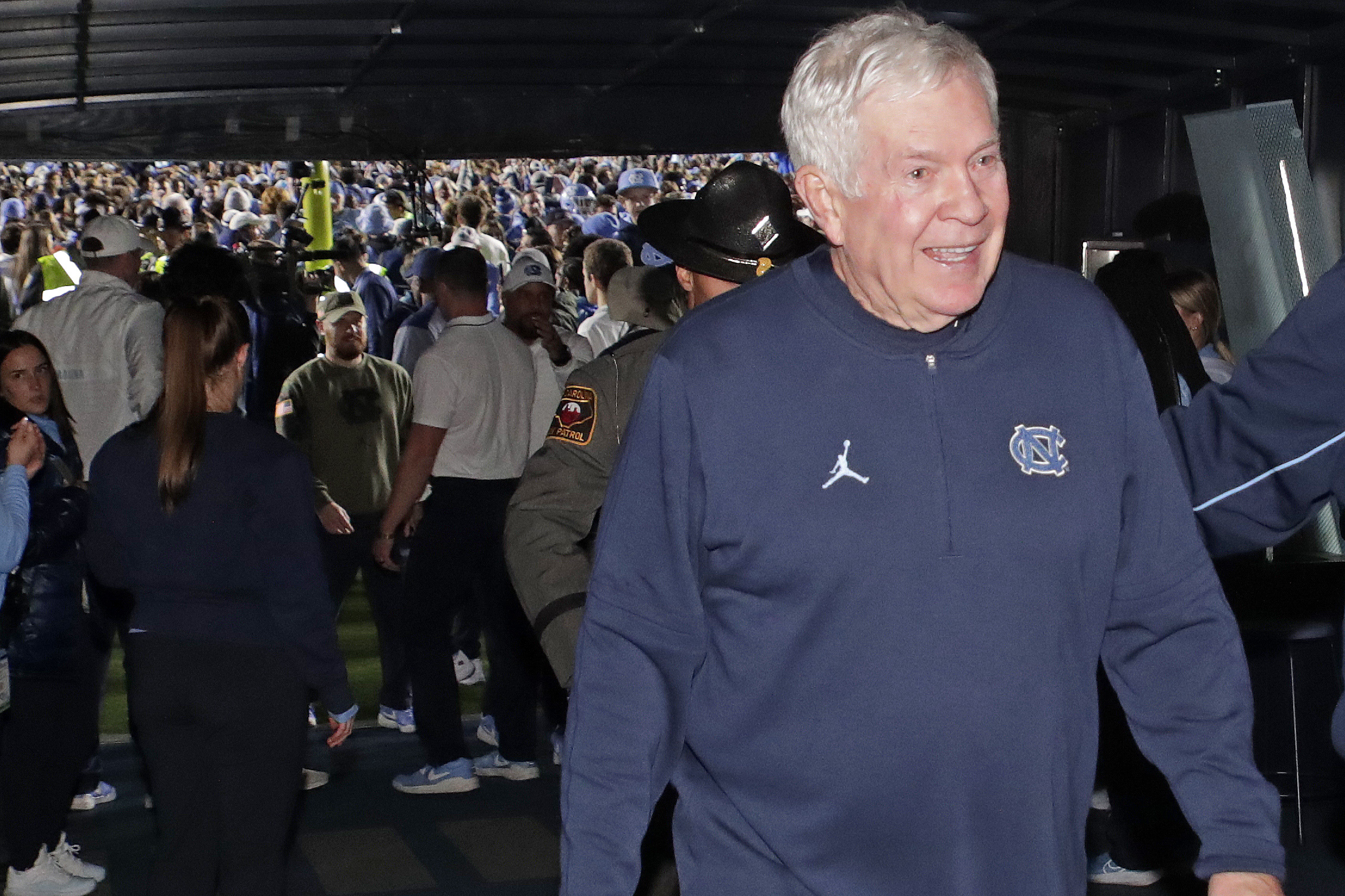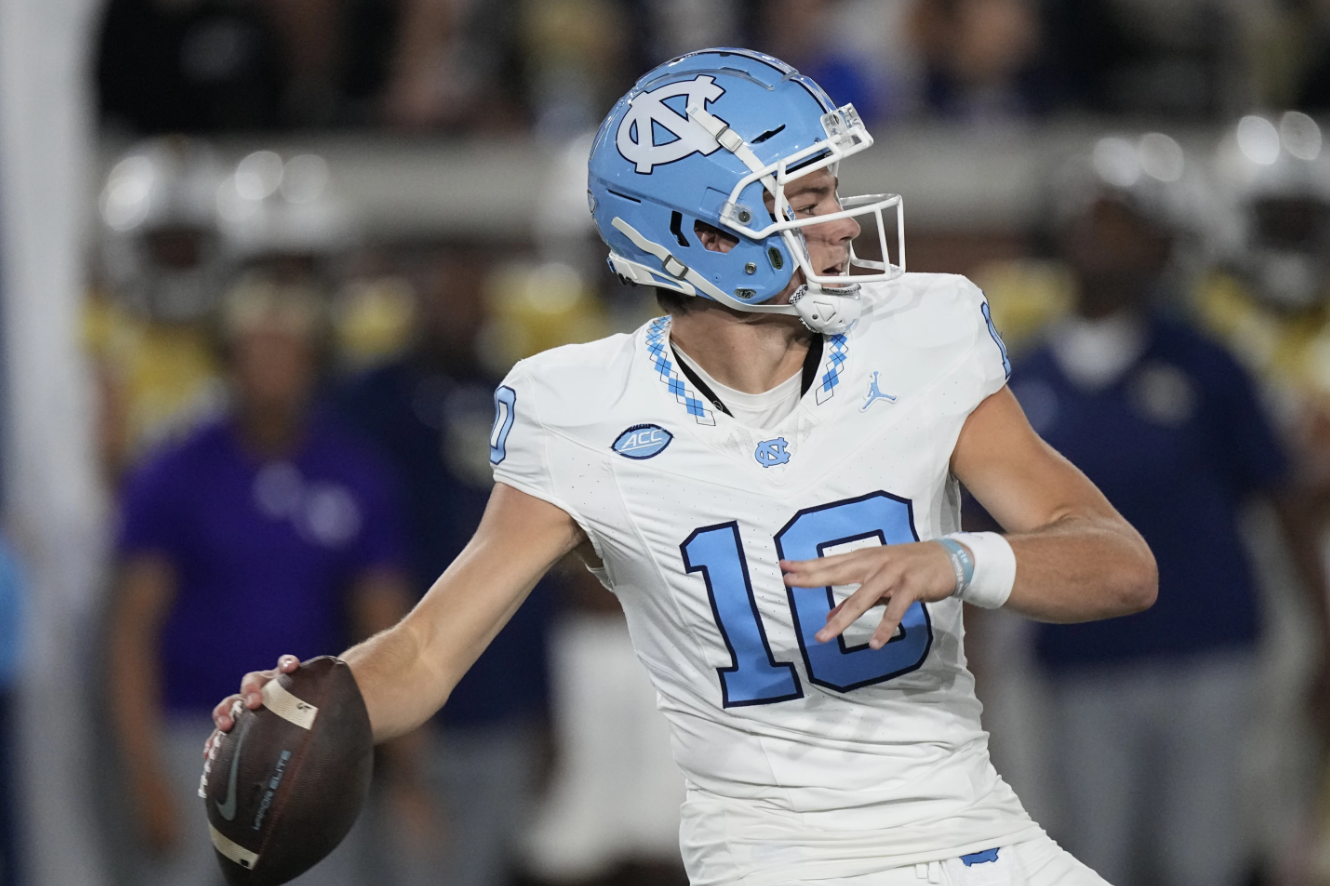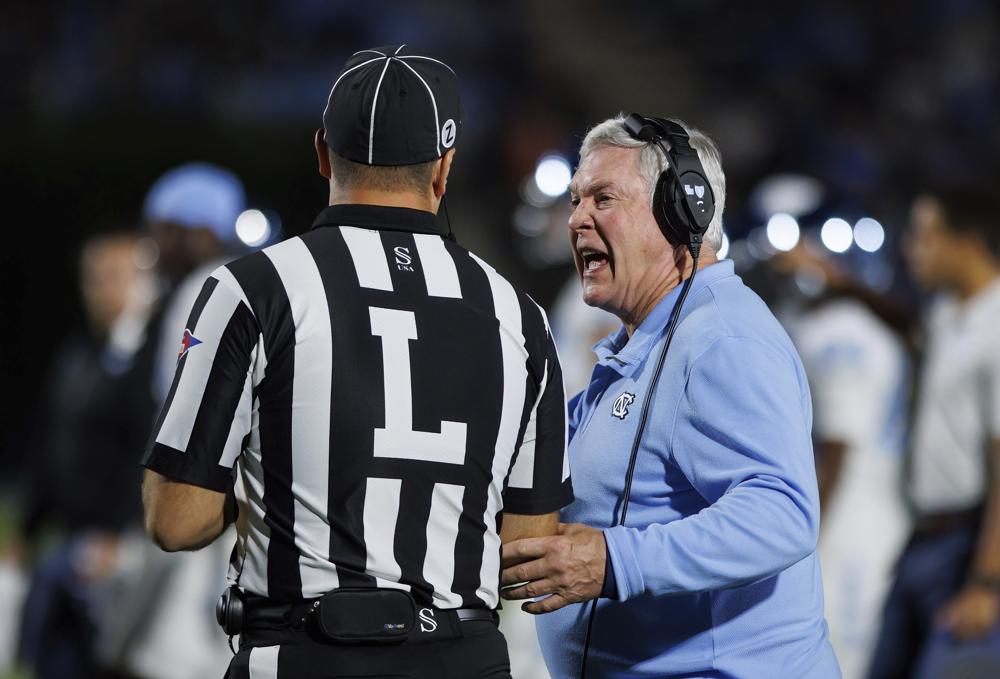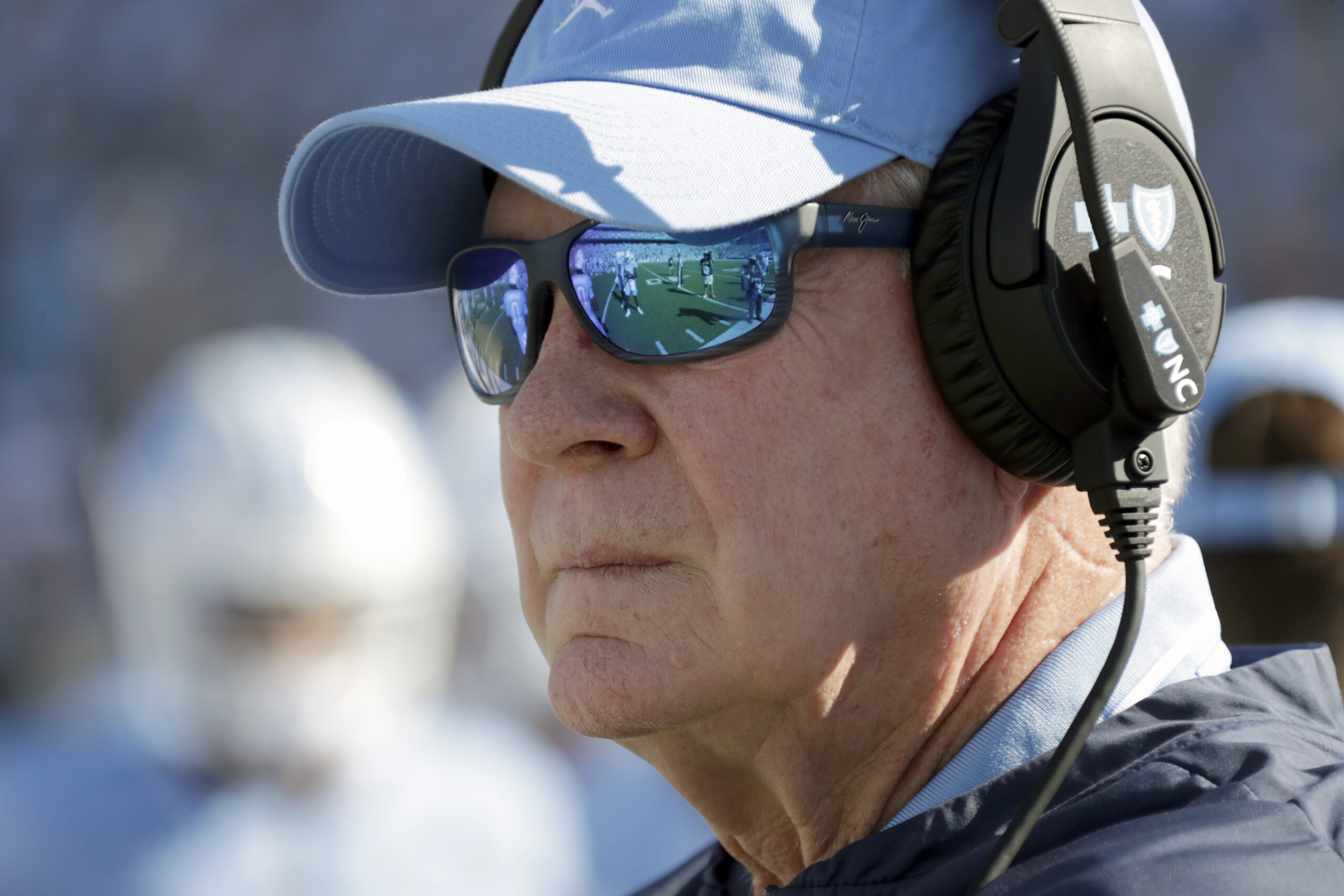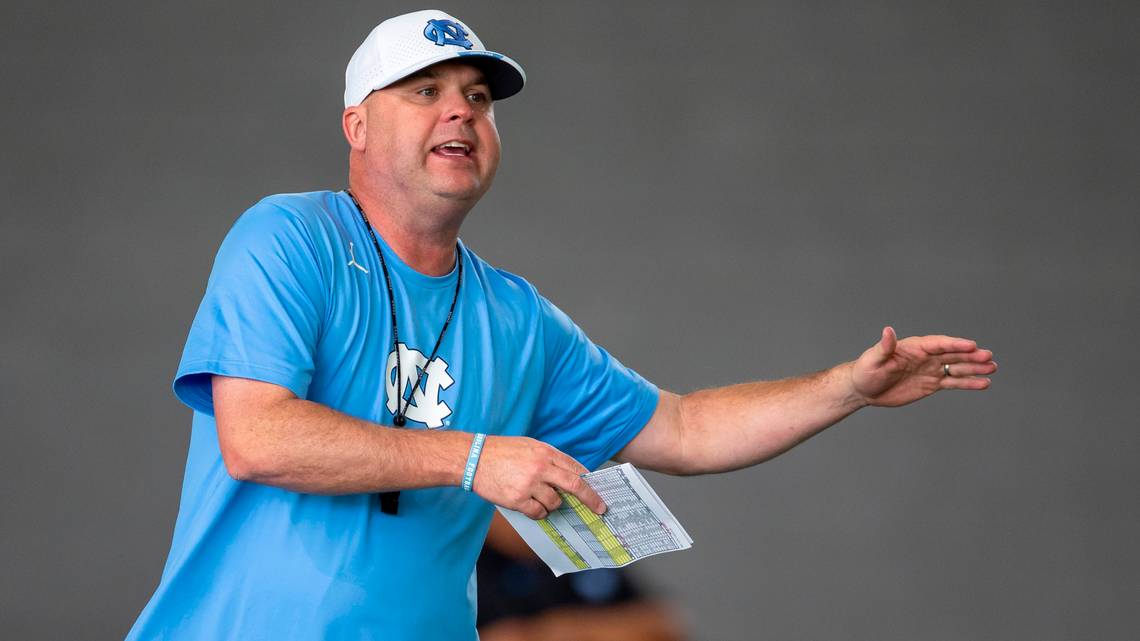
Art Chansky’s Sports Notebook is presented by The Casual Pint. YOUR place for delicious pub food paired with local beer. Choose among 35 rotating taps and 200+ beers in the cooler.
Calling plays in a high-speed football game is a job way above our heads.
Mack Brown has already spent hours this week unpacking what happened in his football stadium Saturday night, a shocking 31-27 loss to a 24-point underdog whose only win was against a small-college team.
Brown wants us to understand what happens from the coaches’ scouting room in the press box to the sideline and the quarterback who has to take the snap in 25 seconds and the defensive captain who must get everyone lined up correctly.
“I do think the hardest job in college football is probably the play caller,” Brown said this week. “There are many people who love to yell at the defensive coordinator if you don’t stop ’em. Everybody loves to call plays and, man, everybody can call ’em that hasn’t called ’em. And it’s a whole lot easier to call ’em when you don’t have information . . . to call ’em after it’s done.”
The guys upstairs are defensive coordinator Gene Chizik and offensive coordinator Chip Lindsey, who both have assistant coaches and analysts with them, all with lots of football experience. When the team you are predicted to blow out starts to come back and takes the lead, who has the game pressure?
Brown is on the sideline listening to all the communication through his head set and says it can get loud and confusing when things cease going smoothly. “People have no concept of how hard it is to call plays and call defenses,” he said, “because they’ve never done it.
“So it’s unfair to ask people when you’ve got about 15 seconds and you’re sitting up there and you’re going fast and everything’s happening. And I have to tell the coaches to shut up, because they’re all giving suggestions.
“I say, ‘Shut up and let him call the plays. You talk during timeouts, you talk when the offense is off the field. You don’t talk to a coordinator while he is trying to think.’ It’s a hard job. And when we run up and down the field, everybody says, God, he did great or Drake’s great. They don’t give them much credit, but they get a lot of criticism.”
Against Virginia, Brown and his staff expected to see formations and plays they had not seen on the scouting tape, because opposing coaches had an open week to prepare strategies not used in their first six games.
“That’s the life you live as a coach,” Brown added. “But if we didn’t have wonderful fans that love coaching and questioning, we wouldn’t have a job. I’ve always said I’d rather our fans be upset over a loss now than not caring at all like when we got here five years ago.”
Featured image via The News & Observer/Robert Willett
Chapelboro.com does not charge subscription fees, and you can directly support our efforts in local journalism here. Want more of what you see on Chapelboro? Let us bring free local news and community information to you by signing up for our biweekly newsletter.



